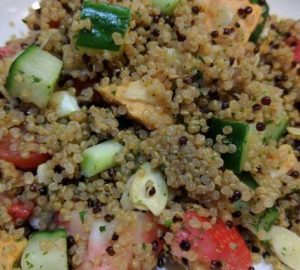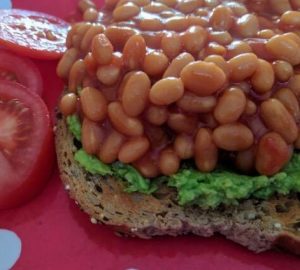Swim Fast, Stay Healthy
Hard training can take its toll on your body and on your immune system in particular, but there are ways to fight back says The Protein Works( https://www.theproteinworks.co…) Sports Scientist Ross Edgley.
As any swimmer (whether recreational or competitive) will know, during periods of intense training there is a fine line between ‘stimulation’ and ‘alienation.’ Swimming at near snail’s pace for 15 minutes a week and you’re not likely to improve, embark on a marathon swim at flat out speed every day and you’re likely to make yourself ill, setting you back even further. Here we explore what supports our immune system and what types of supplements are associated with its maintenance.
Subject of huge debate is what effect the intensity of your swim has on the body’s immune system and whilst there is no clear-cut answer, the general consensus from sports medical journals is that hard, intense, training to near exhaustion can make it very difficult for the immune system to perform its normal, day-to-day defense duties. Whilst conversely, light anaerobic exercise can actually strengthen the body’s response to stress and inflammation. Obviously that’s not to say take it easy and never break a sweat, but instead intelligently take care of your immune system during those intense periods of swimming so you can continue to improve free of sickness. Here’s how.
Firstly it’s important to explain a bit about the immune system (known as the lymph system). It’s essentially a highly complex system of organs (lymph nodes) and cells (lymphocytes) that work together to seek and destroy anything ‘foreign’ that enters the body (such as bad bacteria or a virus.) These lymph nodes are housed strategically throughout the body, and serve as the checkpoint for fluids that carry the lymphocytes. Lymphocytes are cells that patrol the body for potential threats in the form of bacteria, virus and fungi and without becoming too in-depth, they can be classed as T-cells or B-cells.
In a healthy adult, the immune system functions efficiently and can usually stop the detrimental effects of a virus before it becomes too severe. However research shows that when you train at an intensity above 90% of your maximum heart rate or near exhaustion, your oxygen usage skyrockets. This in turn causes an increase in lactic acid accumulation in the muscles, which causes your body to pull alkaline reserves from bones and other mineral dense sources, not to mention muscle tissue being torn and Adenosine Triphosphate levels in the muscles becoming depleted. All in all, the body has a lot to cope with and as a result athletes often experience something known as an ‘immune system crash.’ This is where the efficiency of your immune system is reduced and can last for 3 hours or even 72 hours. It is therefore a good idea to avoid crowded places and unwell people immediately after intense exercise.
Secondly, there are supplements that have been proven to help boost the body’s immune system and help keep your training on the right path. Perhaps the most well known being glutamine (one of the most abundant amino acids in the body) which, as well as playing a vital role in cell volumisation and nitrogen transfer, has also been shown to help the body’s immune system and aid recovery. In fact, research at the Conway Institute for Biomolecular and Biomedical Research at the University College of Dublin found the immune boosting properties of glutamine were so impressive, it was used to treat patients with inflammatory conditions such as infection and injury. Experts recommend around 5 grams per day should greatly help to support a healthy immune system during periods of heavy training.
Finally, another aspect to be considered when looking at supporting your immune system is your body’s PH levels since when they drop below 6.0 your body becomes far more susceptible to disease since it becomes an ideal environment for viruses to thrive. This happens because during intense training your body crosses that barrier from aerobic (working with oxygen) to anaerobic (working without oxygen). When this happens, the body responds by depleting other vital systems of their alkaline (acid neutralizing) compounds, therefore producing a more acidic environment (below PH 6.0.) Put simply, you need to keep your body as alkaline as possible and supplementing your diet with minerals such as calcium, magnesium, sodium and potassium can help do this.
*The Protein Works is an on-line supplier of sports nutrition products. Find out more at https://www.theproteinworks.co…








